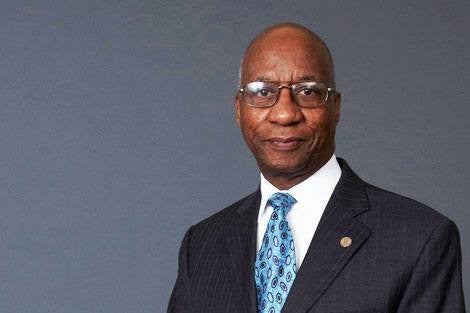“There have been few heroes in my life and Dr. Donald R. Hopkins is one.” With these words, President Jimmy Carter paid tribute to a legendary leader in the field of disease eradication, whose accomplishments include a leading role in the elimination of smallpox.
One of 10 children, the son of a carpenter and a seamstress, Hopkins, MPH ’70, won a scholarship to Morehouse College at age 15—he had to quit his paper route to go—and earned a medical degree at the University of Chicago before attending HSPH. After serving as both Deputy Director and Acting Director of the Centers for Disease Control and Prevention (CDC), he joined the Atlanta-based Carter Center, where he has headed up health programs since 1997. His 1983 book, Princes and Peasants: Smallpox in History, was nominated for a Pulitzer Prize, and his many awards include a MacArthur “genius” grant.
Hopkins’ sights are currently trained on eradicating Guinea worm disease, officially known as dracunculiasis—a parasitic illness so intensely painful that it’s been dubbed “the fiery serpent.” The goal is within reach. When he began his work in 1986, there were an estimated 3.5 million Guinea worm disease cases. Today, there are fewer than 600, and in January 2013, there were no cases reported worldwide for the very first time. “I’m increasingly confident that it’s less and less likely that the disease will outlive me,” the 71-year-old Hopkins recently told the New York Times.
You can learn more about Hopkins in this video, where he talks about public health challenges—past, present, and future—as well as about his own life and what drives his work. “Our job is to present information to decision-makers in a way that makes them uncomfortable,” he says. “If you can present things in the right way, then you have a much better chance of motivating people.”
* * * * *
Is there an event, person, or discovery in Harvard School of Public Health history that you’d like to read about? Send your suggestions to centennial@hsph.harvard.edu.
